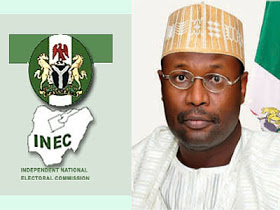
As part of its preparations for the 2019 election, the Independent National Electoral Commission (INEC) has cancelled manual transmission of results from polling units.
It will now use e-Collation and Result Transmission System in all the 120, 000 polling units.
The commission opted for the new result transmission system after a three-year trial or test run during by-elections and rerun elections.
Also, the electoral agency said that farmers, housewives, students top the list of 23, 643, 479 accredited voters during the 2015 general elections.
These details are contained in a document titled “Towards 2019: Recent technological deployments” made available to stakeholders between March 14 and 21 by INEC.
INEC said the adoption of e-collation followed recurring manipulation of results between Polling Units (Pus) and collation centres.
INEC said: “Observations have shown, over the years that most election malpractices that take place do not happen at the Polling Units (PUs)
“The challenge has been after the polls -between the PU and the Collation Centres, and at the Collation Centres.
“INEC has, therefore, decided to securely transmit election results from all Pus straight to a central database, such that only viewing access is allowed at the Wards and the LGAs – which ultimately is aimed at eliminating manual collation processes.”
The electoral commission also highlighted the features of the new e-collation system:
• is a robust and well secured platform that collects data from the Polling Units (PUs) and collates the results up to the required level for any set election;
• has the ability to collate and transmit data across the country;
• can collect results from either of the following: Local Government Area (LGA), Ward/Registration Area (RA), or PU;
• works with any election type – Presidential, National Assembly, Governorship or State Houses of Assemblies;
• The portal has a flexible dashboard with a real-time user interface, showing a graphical presentation of the current status of results collated per given time; and
• has been piloted for all bye-elections and re-run elections since 2014.
The document added: “INEC is preparing for 2019, and is further deploying technology to improve its service delivery, make its processes more credible and less prone to manipulations.
“The votes of Nigerians must keep counting, and this is what technology is helping us to achieve.
“Continuous Voter Registration is commencing soon, Nationwide – giving an opportunity to those who have recently turned 18 or have not been previously enrolled to vote.
“Operations of the SCRs are being improved to make the process of voter authentication better. Result collation process will become better when results are transmitted from the PUs.
Besides, INEC has also released the Card Reader Analysis of 2015 general elections, which shows that farmers, housewives, students top the list of voters.
According to the statistics compiled by the commission’s Director of ICT, Mr. Chidi Nwafor, out of 23, 643, 479 accredited votes in 2015, those who turned out are of the following categories: farming /fishing(5,054,695,21); students(4, 679, 481, 20); housewives(4, 137, 769, 18); business(3, 036, 291, 13); and trading (2, 060, 964, 09).
INEC Chairman Prof. Mahmood Yakubu has confirmed that 87 associations applied for registration as political parties.
He also explained why INEC released the date template for 2019 general elections and subsequent ones in the country.
Yakubu, who spoke on the 2019 elections, said: “We are going to conduct elections into 1,560 constituencies and districts including 29 governorship elections, 109 districts, 360 Federal Constituencies and 999 State Assembly constituencies. Also in 2019, the three-year tenure of the FCT Area councils will come to an end. This will lead to the conduct of six chairmanship election and 62 councillorships.
“So, we need to plan ahead. Security agencies must also have time to mobilise. With our economy in recession, we also need to get our budget sorted out.
“As soon as our strategic plan is validated, we are going to submit our proposals to the National Assembly.
“The new Strategic Plan will cover our electoral cycle. A document is being prepared for validation by stakeholders.”
On the nation’s party system , Yakubu said: “Today, we have 40 registered political parties but we have received 87 applications from associations seeking registration as parties. We will apply the relevant provisions of the law and our guidelines.”






